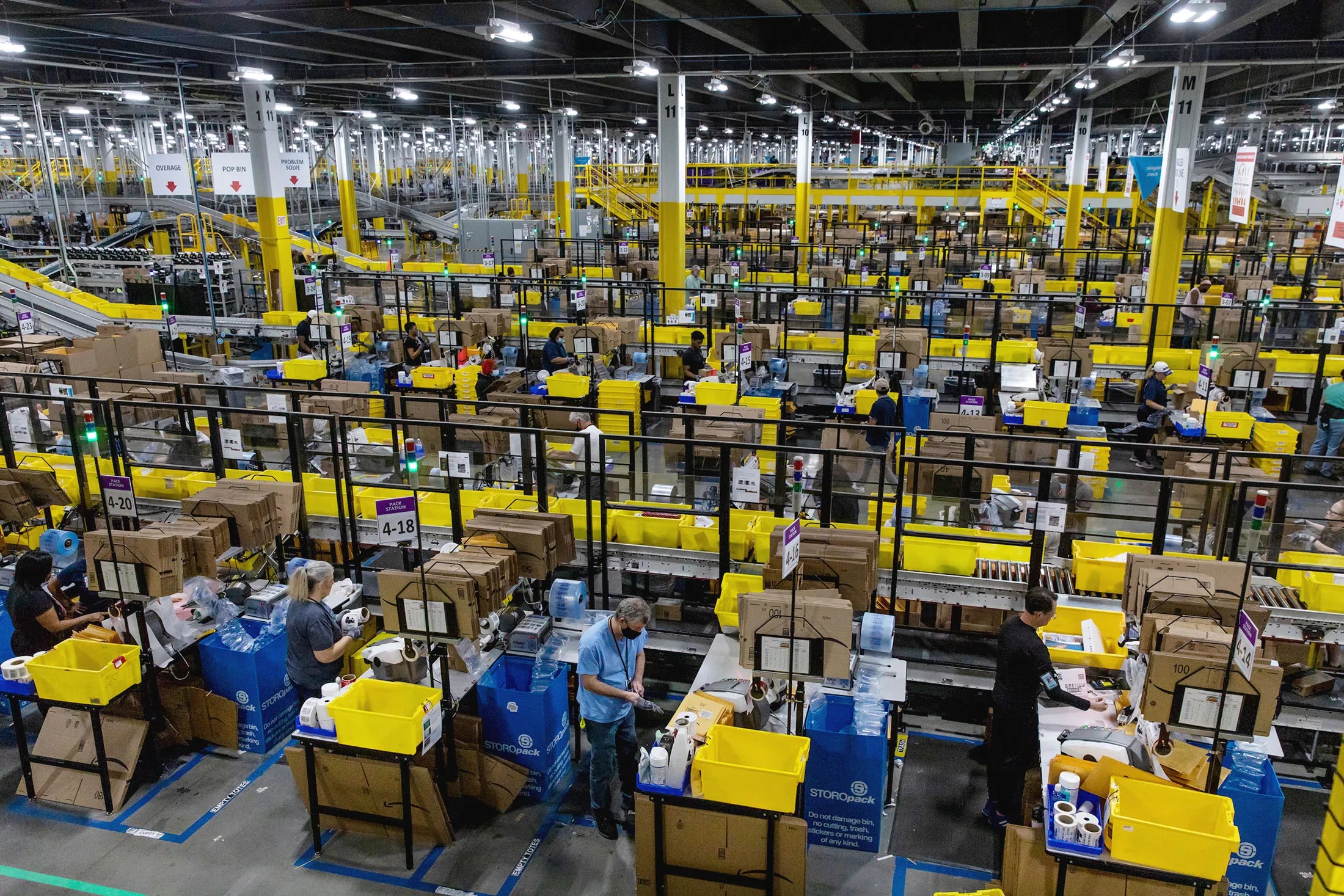A detailed and damning Senate investigation has revealed that Amazon, the retail giant that dominates the global e-commerce industry, has failed to protect the safety of its warehouse workers despite being aware of the risks posed by its high-speed productivity system. The findings, led by Senator Bernie Sanders and the Senate Committee on Health, Education, Labor, and Pensions, expose the physical toll Amazon’s relentless efficiency takes on its workforce, with injury rates far exceeding those seen in other warehousing companies.
The 18-month investigation involved over 135 interviews with current and former employees, alongside a comprehensive review of more than 1,000 documents and public records. The data paints a troubling picture: in 2023, Amazon warehouses reported injury rates 30% higher than the national industry average. Even more concerning, Amazon workers have consistently faced nearly double the injury rates of employees working in non-Amazon warehouses for each of the past seven years. According to the report, these injuries primarily result from repetitive physical tasks, high-speed requirements, and insufficient recovery time, factors that are exacerbated by the company’s unrelenting productivity goals.
The report draws attention to the extraordinary demands placed on Amazon’s workforce. Workers are monitored using sophisticated tracking systems that measure their productivity in real time, leaving them under constant pressure to meet strict hourly quotas. Tasks like stowing, picking, and packing products are performed at speeds that workers describe as punishing. Any slowdown risks disciplinary action, creating an environment where employees feel compelled to push their bodies to the brink. Over time, this pressure manifests in injuries ranging from minor strains to serious musculoskeletal disorders that can have lasting health impacts.
Despite internal awareness of these risks, the Senate report accuses Amazon of actively resisting changes that could alleviate worker strain. The company’s leadership, the investigation claims, has repeatedly rejected proposals to ease the pace of work or adjust productivity targets, prioritizing efficiency and profits over safety. This decision has drawn criticism from labor advocates and lawmakers alike, who argue that Amazon’s approach reflects a systemic disregard for the physical well-being of its employees.
The report’s findings are particularly significant given the role Amazon played during the Covid-19 pandemic, when e-commerce demand surged to unprecedented levels. Warehouse employees became essential frontline workers, tasked with sustaining the global supply chain amid a public health crisis. Yet, as demand increased, so did the strain on employees, many of whom reported worsening conditions and heightened injury risks. Public outcry during this period drew attention to Amazon’s labor practices, with workers staging protests across the United States and beyond to demand safer working environments.
In response to the Senate report, Amazon has rejected the findings, describing the investigation as both inaccurate and unfair. The company claims that the report relies on outdated information and fails to account for the progress it has made in improving safety measures. “This was not an objective fact-finding mission,” Amazon said in a statement, “but rather a deliberate attempt to misrepresent our operations and distort reality.” The company pointed to ongoing investments in safety training, new technologies, and workplace improvements aimed at reducing injuries, while maintaining its position as a leader in logistics and delivery speed.
Nevertheless, the report has reignited concerns about the long-term sustainability of Amazon’s operational model. With over 800,000 employees across the United States, Amazon is a major force in the labor market, and its treatment of workers carries significant implications for both the economy and the broader logistics industry. Critics argue that the company’s insistence on relentless productivity, while profitable, exacts a steep human cost, leaving workers physically depleted and vulnerable to injury.
Senator Sanders, a prominent advocate for workers’ rights, has been at the forefront of efforts to hold Amazon accountable for its labor practices. He criticized the company for its failure to address systemic safety issues, emphasizing that no corporation should operate in a manner that prioritizes profit over human dignity. Sanders’ investigation, supported by Democratic members of the Senate Committee, calls for urgent action to protect workers and reform the conditions under which they operate.
As the findings continue to spark debate, Amazon finds itself at the center of a growing movement for stronger worker protections and corporate accountability. The revelations serve as a stark reminder of the human cost of modern convenience, where the promise of rapid delivery often depends on the physical sacrifices of those working behind the scenes. For Amazon, the challenge of balancing speed, efficiency, and safety remains a deeply contentious and unresolved issue.









